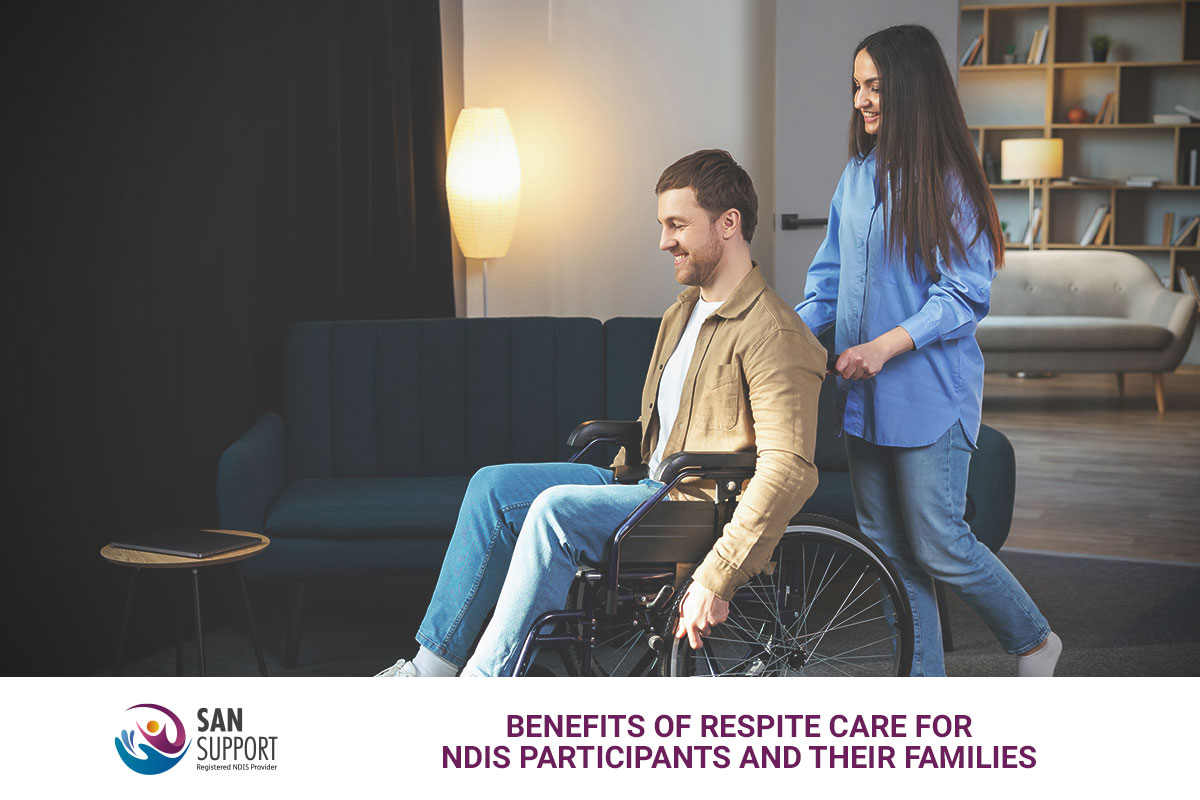
Caring for a loved one with a disability is a fulfilling yet demanding responsibility. Over time, caregivers may experience exhaustion, making it challenging to provide the best possible support. NDIS respite care, funded through Short-Term Accommodation (STA), offers a practical solution by allowing caregivers to take a break while ensuring that participants receive high-quality support, social engagement and skill development.
This guide explores the benefits of NDIS respite care, how STA funding works and why investing in respite services enhances the well-being of both caregivers and participants.
What is NDIS Respite Care and How Does STA Funding Work?
Before diving into the benefits, it is essential to understand what NDIS respite care includes. Respite care provides temporary support for individuals with disabilities, giving caregivers time to recharge while participants receive professional care in a structured environment.
The National Disability Insurance Scheme (NDIS) funds respite care under Short-Term Accommodation (STA), which includes:
- Safe and comfortable accommodation for up to 14 days per stay
- Personal care and daily support from qualified professionals
- Social and recreational activities tailored to individual preferences
- Skill-building programs that encourage greater independence
- Community participation opportunities to develop social skills
By offering temporary relief for caregivers and enriching experiences for participants, respite care ensures that both families and individuals benefit from a balanced, sustainable support system.
Key Benefits of NDIS Respite Care for Participants and Caregivers
Gives Caregivers the Rest They Need
Providing full-time care can lead to burnout, stress and fatigue, which negatively affects both the caregiver and the participant.
- Respite care allows caregivers to rest, handle personal responsibilities and focus on their own well-being.
- Taking regular breaks helps caregivers maintain their energy levels and emotional resilience.
- A well-rested caregiver can provide better quality support for their loved one in the long run.
By stepping away from daily care giving duties, caregivers return refreshed and more equipped to provide compassionate care.
Helps Participants Build Social Skills and Friendships
Many people with disabilities experience social isolation, which affects their emotional and mental well-being. Respite care provides structured opportunities for participants to interact with others, form friendships and enhance their communication skills.
- Group activities and outings encourage social engagement.
- Peer interaction helps build confidence in social settings.
- A safe and inclusive environment promotes emotional well-being.
With consistent social participation, participants develop stronger communication skills, boost their self-esteem and feel more connected to their community.
Provides a Change of Scenery for Mental Well-Being
Following the same daily routine can sometimes feel repetitive and limiting. NDIS respite care introduces a change of environment, which can offer significant mental and emotional benefits.
- Participants experience new settings that encourage exploration and learning.
- They engage in varied recreational activities, keeping their experiences fresh and engaging.
- Exposure to different environments increases adaptability and confidence.
By stepping outside their usual routine, participants experience renewed motivation and reduced stress levels, contributing to overall well-being.
Encourages Independence and Life Skills Development
NDIS respite care is not just about temporary support it is also about long-term skill-building. Many STA programs focus on helping participants develop essential life skills that promote independence, including:
- Cooking and meal preparation to build confidence in the kitchen
- Household management, including cleaning, laundry and organisation
- Using public transport, fostering independent travel skills
- Money management and budgeting to support financial independence
By learning practical skills, participants become more self-sufficient and better prepared for Supported Independent Living (SIL) in the future.
Provides Families with Peace of Mind
Families want reassurance that their loved ones receive high-quality, professional care when they are not around. NDIS-funded respite services ensure participants are in a safe, structured and nurturing environment.
- Personalised care plans align with each participant’s specific needs.
- Trained disability support workers provide expert care and supervision.
- A well-organised, engaging routine keeps participants active, happy and socially involved.
By choosing a trusted respite provider, families gain confidence knowing their loved one is receiving the best possible care.
How to Apply for NDIS Respite Care and STA Funding
Now that we have covered the benefits, let’s explore how NDIS participants can access respite care through Short-Term Accommodation (STA) funding. This funding covers:
- Accommodation, meals and personal care
- Daily support and social participation activities
- Skill-building programs designed to enhance independence
Steps to Access STA Funding:
- Consult an NDIS planner or support coordinator to discuss respite care needs.
- Select an NDIS-registered respite provider that aligns with the participant’s goals.
- Ensure that STA funding is included under Core Supports in the participant’s NDIS plan.
By planning ahead, families and participants can access respite services when needed, without unnecessary delays or stress.
Conclusion
NDIS respite care provides essential support for both caregivers and participants. It allows caregivers to take necessary breaks, ensuring they can continue offering the best care possible. Meanwhile, participants gain independence, build friendships and explore new experiences in a structured, supportive setting.
At SAN Support, we specialise in high-quality, person-centred respite care. Our services offer a safe, enriching and inclusive environment where NDIS participants can develop essential life skills, gain confidence and feel supported. Whether you need short-term respite or ongoing support, we are here to guide you through NDIS respite care and STA funding options.
